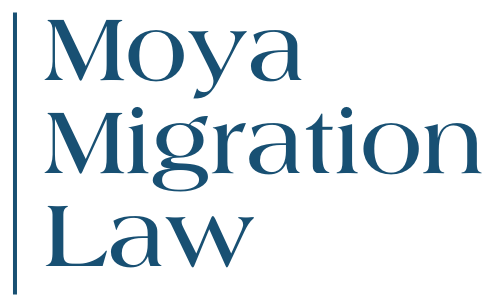Introduction
Receiving a partner visa refusal from the Department of Home Affairs can be a significant setback, and the prospect of an appeal hearing at the Administrative Review Tribunal (ART) is often the most daunting part of the process. For many applicants and their sponsors, the hearing room is filled with uncertainty, creating anxiety about what questions will be asked and how to answer them effectively.
This guide aims to demystify the ART hearing by explaining the types of questions a Tribunal Member is likely to ask and the reasons behind them. Understanding that the primary purpose of these questions is to be satisfied that your relationship is genuine and continuing can empower you to prepare thoroughly and present your case with confidence.
Why the ART Asks These Questions
The primary purpose of an ART hearing for a partner visa refusal is for the Tribunal Member to conduct a fresh review of your case. The Member must be satisfied that your relationship is genuine, continuing, and excluding all others.
The questions asked during the hearing are not designed to trick you, but rather to build a clear and consistent picture of your life together. To assess your relationship, the Member will focus on four key pillars that provide a framework to determine if your partnership meets the requirements under Australian migration law:
- The financial aspects of your relationship: This involves how you manage and share financial resources and responsibilities as a couple.
- The nature of your household: This pillar examines how you live together, share domestic duties, and manage your day-to-day home life.
- The social aspects of your relationship: This looks at how you present yourselves as a couple to the outside world, including the family, friends, and the community.
- The nature of your commitment to each other: This assesses the history of your relationship, your emotional support for one another, and your long-term plans for the future.
Request Your Free 15-Min Consultation
Pillar 1: Financial Aspects of Your Relationship
Key Questions on Financial Interdependence
The ART examines your finances to assess evidence of financial interdependence. The Tribunal Member looks for proof that you and your partner share financial responsibilities and manage money together—a key characteristic of a genuine and continuing relationship. How you handle finances can strongly indicate your mutual commitment.
During your partner visa hearing, you can expect questions that build a detailed picture of your shared financial life. These questions verify information from your visa application and explore the practical details of your economic partnership.
Commonly asked questions include:
| Financial Topic of Inquiry | Key Details & Examples Assessed by the Tribunal |
|---|---|
| Joint Bank Account | How the account is used, who makes deposits, and what kinds of expenses are paid from it. |
| Shared Household Bills | How regular expenses such as rent/mortgage payments, utilities, and groceries are shared. |
| Mutual Financial Awareness | The level of transparency and knowledge you have of each other’s salary, assets, and debts. |
| Major Joint Purchases | Significant items that demonstrate shared financial commitment, such as property, vehicles, or furniture. |
| Beneficiary Nominations | Being named as beneficiaries in each other’s superannuation, wills, or life insurance policies. |
| Joint Financial Decisions | The process for making joint decisions on significant financial matters and future planning. |
Request Your Free 15-Min Consultation
Pillar 2: The Nature of Your Household
At your ART hearing, the Member will ask questions about your household to verify that you and your partner live together and share a domestic life. These questions are designed to test the day-to-day reality of your cohabitation, providing evidence that you share a home as a genuine couple would.
The Tribunal Member may ask various questions to understand your living arrangements and daily routines. Common questions include:
- Can you describe the layout of your home, including the number of bedrooms and the contents of your bedroom?
- What side of the bed does your partner sleep on?
- How do you divide household chores like cooking, cleaning, laundry, and shopping?
- What is your partner’s daily routine, including what time they usually wake up and go to sleep?
- What did you do together last weekend?
- Have you lived at other addresses together during your relationship?
Request Your Free 15-Min Consultation
Pillar 3: Social Aspects of Your Relationship
During a partner visa refusal hearing, the ART will explore the social aspects of your relationship to confirm it is known and accepted by others. The Tribunal Member seeks to understand how you present as a couple to the outside world, as this is a strong indicator of a genuine partnership.
Providing evidence that your family, friends, and community recognise you as a couple can significantly strengthen your case. The Member will ask questions designed to build a picture of your shared social life.
You can expect to be asked about the following:
| Social Aspect | Purpose of Inquiry & Evidence Sought |
|---|---|
| Meeting Family & Friends | Demonstrates integration into each other’s lives. The Member will want to know names of key people and when introductions occurred. |
| Perception by Others | Assesses whether family and friends view the relationship as genuine. Statements or testimony can be crucial evidence, which relates to whether you should bring a witness to your Tribunal hearing. |
| Joint Social Attendance | Shows inclusion in each other’s social and family circles. Examples include weddings, holidays, and birthdays attended as a couple. |
| Joint Travel | Provides evidence of a shared life and commitment. Be prepared to discuss details of any trips taken together. |
| Joint Invitations | Indicates that others in your social circle view you as a committed pair. |
| Photographic Evidence | Visually supports claims that the relationship is public and recognised by others across various events and occasions. |
Request Your Free 15-Min Consultation
Pillar 4: The Nature of Your Commitment
The ART will ask questions about the nature of your commitment to understand the history, depth, and future of your relationship. During this process, the Tribunal Member assesses your long-term intentions and the emotional support you provide one another to determine if your partnership is genuine and continuing.
These questions are designed to build a timeline of your relationship and explore the substance of your bond, which is why preparing a timeline of significant events that have occurred in the relationship is such a vital step. You can expect to be asked about:
| Area of Inquiry | Details Assessed by the Tribunal |
|---|---|
| Beginning of Relationship | When, where, and how you first met, and the point at which the relationship became serious and exclusive? |
| Future Plans | Shared goals, which could involve plans for marriage, children, property, or career paths. |
| Emotional Support | How you support each other during difficult or stressful times, demonstrating a key aspect of a committed partnership. |
| Knowledge of One Another | The depth of your connection, tested by questions about your partner’s hobbies, passions, family background, and aspirations. |
| Communication | How you communicate, especially during any periods spent apart, to verify the continuity of your relationship. |
Request Your Free 15-Min Consultation
Handling Difficult Questions & Key Hearing Tips
Handling Challenging Questions
During your ART hearing, you may face questions that seem difficult or uncomfortable. These often relate to:
- Past relationships
- Periods of separation
- Inconsistencies in your visa application
The key is to remain calm and provide honest, direct answers.
If the Tribunal Member raises a discrepancy—often stemming from the common reasons for visa application refusal—listen carefully and provide a truthful explanation. It is better to admit a mistake or a lapse in memory than to invent an answer, which can damage your credibility.
For sensitive topics like previous marriages or periods you have lived apart, offer a clear context for the situation and explain how you maintained your commitment to your current partner.
Key Tips for Effective Answers
Your conduct and the clarity of your answers can significantly impact the outcome of your hearing. To present your case effectively, it is important to follow some practical guidelines. Preparing with your partner is crucial, but your answers should sound natural, not rehearsed.
Here are some key tips to keep in mind during your ART hearing:
| Tip | Explanation |
|---|---|
| Listen Carefully | Ensure you fully understand the question before answering. It is acceptable to ask for clarification or for the question to be repeated. Do not interrupt the Tribunal Member. |
| Be Honest and Consistent | Answers must be truthful and align with provided evidence. If you do not know or cannot remember, say so. Guessing can damage your credibility. |
| Remain Calm and Respectful | Maintain a calm demeanour in a formal setting. Address the Member with respect, even when faced with challenging questions. You can request a short break if you feel overwhelmed. |
Request Your Free 15-Min Consultation
Conclusion
A partner visa refusal hearing at the ART assesses your relationship’s authenticity through detailed questions about your shared life. Understanding that these questions test the financial, household, social, and commitment aspects of your partnership is the first step toward preparing a confident and credible case.
If you are facing an ART hearing and need guidance to navigate the appeal process, contact Moya Migration Law’s experienced partner visa appeal lawyers for specialised representation. Our Adelaide-based experienceds can help you prepare thoroughly, address the reasons for refusal, and present your case with the trusted experiencedise required to secure your best possible outcome.









